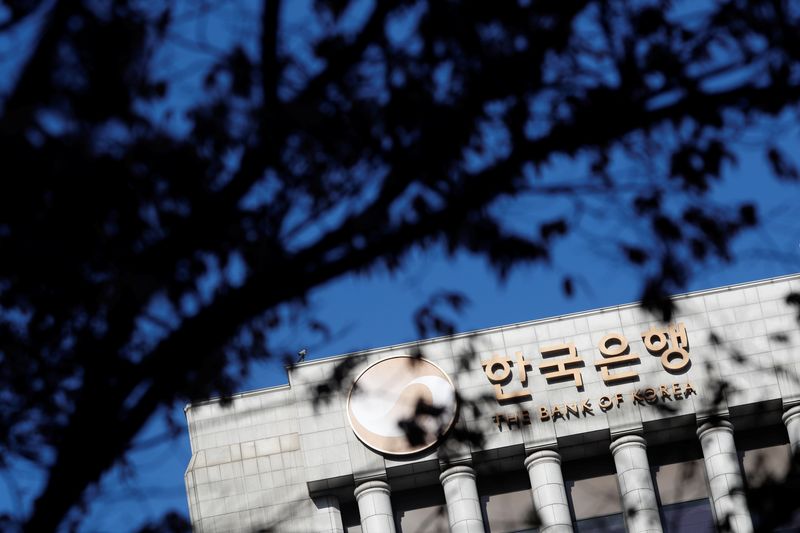Select Language

By Cynthia Kim and Jihoon Lee
SEOUL (Reuters) -South Korea's central bank held interest rates at a 15-year high on Thursday and struck a balanced policy tone while reiterating risks around inflationary pressures in the wake of stronger-than-expected economic growth.
Governor Rhee Chang-yong said for now the Bank of Korea will continue to keep policy restrictive at the current 3.50% benchmark rate amid sticky inflation and the surprise first-quarter growth performance.
"There are expectations for interest rate cuts in the second half, but uncertainties over the timing of it is now even greater," Rhee told a press conference soon after the BOK unanimously held its key rate steady, as expected by all 43 analysts polled by Reuters.
"It's not like growth is excessively hot so it is desirable to normalize restrictive interest rates should inflation stabilizes to the target level which we are hoping for."
The BOK also raised growth forecast for this year to 2.5% from 2.1% after Asia's fourth biggest economy grew at its quickest pace in two years in the first quarter.
The bank kept its February inflation outlook for this year at 2.6%, as the impact from stronger growth "was not seen big enough to alter" the forecast, Rhee said.
South Korea’s policy-sensitive three-year treasury bond futures started to rise after the BOK kept its inflation forecast for this year and extended gains to as much as 0.13 points to 104.54 during Rhee’s news conference.
"There is some relief in the market that the BOK maintained its inflation outlook, and given that short-term outlook among board members remains the same, expectations the BOK will start cutting rates in the second half is very much alive," said Ahn Jae-kyun, an analyst at Shinhan Securities, who sees a 25 basis-point cut in the fourth quarter.
The BOK's tightening cycle began earlier than most global peers in mid-2021, with policy interest rates rising by a cumulative 300 basis points to 3.50%.
As with the rest of the world, the central bank is closely monitoring the debate around the timing of the Federal Reserve's interest rate cuts, as any easing in the U.S. could drive up the won and alter inflation dynamics.
South Korean Inflation is coming down, as April headline data showed an easing for the first time in three months to 2.9%, but it remains above the BOK's target rate of 2%.
Median forecasts show analysts see the benchmark interest rate will remain unchanged through the third quarter before a 50 basis-point cut in the fourth quarter, as some pushed back their timing of cuts after the stronger-than-expected GDP data.
In an April survey, the consensus view predicted 25 basis-point cuts each in the third and fourth quarter.

